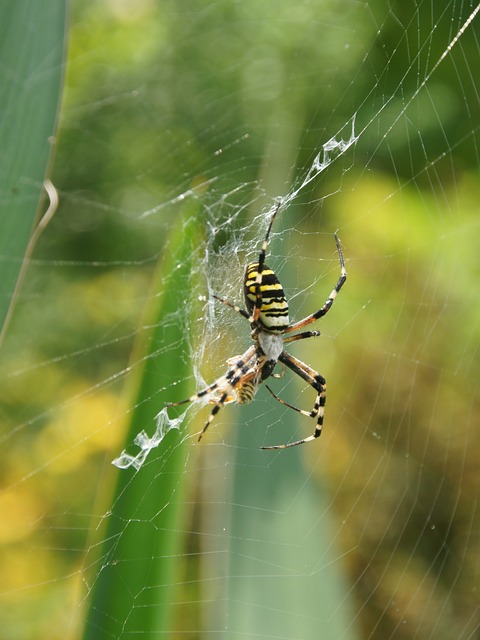Wasp behavior is a delicate balance as they serve as pollinators and predators. While their presence near habitats poses risks, understanding their habits is crucial for safe removal. Eco-friendly solutions focus on affordable wasp extermination methods that minimize environmental harm using natural repellents, non-lethal techniques, and sustainable practices. Traditional chemical pesticides are replaced by alternatives like essential oils, traps, and structural modifications to protect both humans and the environment, ensuring an effective and eco-conscious approach to wasp control.
Wasp infestations can be a nuisance, but safe removal is essential for both humans and the environment. This article explores eco-friendly solutions to effectively manage wasps while ensuring the well-being of your family and local ecosystem. We delve into understanding wasp behavior, comparing traditional methods with greener alternatives, offering affordable eco-conscious tips for control, and providing implementation guidance for a sustainable, safe removal process. Say goodbye to pesky wasps without harming nature.
Understanding Wasp Behavior and the Importance of Safe Removal
Wasp behavior is complex, playing a vital role in our ecosystem as pollinators and predators. However, their presence near human habitats can pose significant risks due to potential stings. Understanding these insects’ habits is crucial for safe removal. Wasps are generally territorial and will defend their nests aggressively if disturbed. They are also highly attracted to sweet substances, which is why they often frequent areas with food sources or garbage.
When considering eco-friendly solutions, it’s essential to adopt affordable wasp extermination methods that minimize harm to both humans and the environment. Professional services now offer safe alternatives to traditional pesticides, utilizing natural repellents and non-lethal techniques for nest removal. These methods ensure that wasps are managed humanely while maintaining a balanced ecosystem.
Traditional vs. Eco-Friendly Wasp Extermination Methods
Traditional wasp control methods often rely on toxic chemicals, which can be harmful to both the environment and non-target species. These chemical pesticides may leave residuals in the soil, water sources, and surrounding ecosystem, posing risks to wildlife, beneficial insects, and even human health. As a result, many are turning towards eco-friendly alternatives for safe wasp removal.
Eco-friendly solutions offer a more sustainable approach by utilizing natural predators, biological controls, and non-toxic repellents. These methods not only reduce environmental impact but also provide long-term results, making them an affordable wasp extermination option. By embracing these alternative techniques, we can minimize the ecological footprint of pest control while effectively managing wasp populations.
Affordable, Eco-Conscious Solutions for Effective Wasp Control
In today’s eco-conscious world, there’s a growing demand for safe and affordable wasp removal methods that don’t harm the environment. Traditional chemical pesticides, though effective, can leave behind harmful residues and contribute to pollution. However, there are numerous budget-friendly alternatives that offer effective wasp control without compromising ecological balance. One such solution is using natural repellents like citronella candles or essential oils, which not only deter wasps but also add a pleasant aroma to your space.
Another cost-effective method involves structural modifications to limit wasp access. Sealing entry points and ensuring proper ventilation can significantly reduce wasp infestations over time. Additionally, using insect traps that attract and capture wasps can be highly effective, with the bonus of reducing overall insect population. These eco-friendly solutions not only provide safe wasp removal but also promote a healthier, more sustainable living environment.
Implementation Tips for a Safe and Sustainable Wasp Removal Process
When implementing eco-friendly solutions for safe wasp removal, it’s crucial to adopt practices that are both effective and sustainable. One key tip is to opt for affordable wasp extermination methods that avoid harmful chemicals. Natural alternatives like essential oils, soapy water, or specific plants known to repel wasps can be highly effective and gentle on the environment.
Additionally, timely intervention is vital. Regularly inspect your surroundings for wasp nests and take action when they’re still small. This not only makes removal easier but also reduces the risk of aggressive behavior from wasps. Ensure proper waste disposal of any trapped wasps and clean areas thoroughly to prevent re-infestation. Remember, a safe and sustainable approach to wasp removal is both environmentally friendly and cost-effective, making it an ideal choice for those seeking affordable wasp extermination.
In conclusion, understanding wasp behavior and prioritizing safe removal methods is key to a harmonious coexistence with these insects. Eco-friendly solutions offer an effective and sustainable approach to wasp control, allowing us to protect both our health and the environment. By opting for affordable, eco-conscious methods, we can enjoy peaceful outdoor spaces without compromising our well-being or contributing to ecological harm. Remember, safe and sustainable wasp removal is within reach through simple, accessible means.
